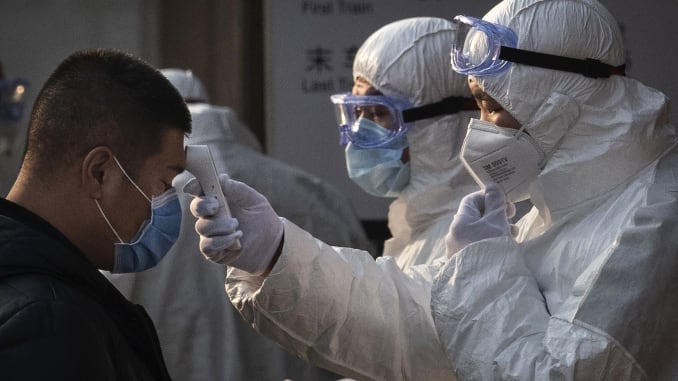WHILE public health authorities in China and the world intensify efforts in fighting novel coronavirus pneumonia, the Chinese Embassy in Tanzania has cautioned about a clear and present danger of rumours and misinformation about the disease circulated on social media.
Since the outbreak of the virus in Wuhan City, Hubei province of China on December last year a series of false information around the deadly disease have been all over social media platforms; Facebook, Twitter, Instagram and Whatsapp.
“There are some rumours circulating on the social media in Tanzania related to NCP.
As WHO Director General, Dr Tedros Adhanom rightly put it, the virus is fearsome in itself, but what is more fearsome are rumours and panic,” read in part the statement released by the Chinese Embassy in Dar es Salaam on Monday.
The statement apparently urged the public to rely on authoritative and reliable sources of information, especially the Chinese government, which has been sharing information related to NCP in an open and transparent manner.
“Please do not believe those rumours and keep informed by official and reliable sources, including the Tanzanian Ministry of Health, Community Development, Gender, the Elderly and Children and the Chinese Embassy in Tanzania,” the Embassy appealed.
As of yesterday, the death toll in the coronavirus outbreak in China had reached more than 1,000, after 108 people died from the virus on Monday, the highest daily toll since the outbreak began late last year.
The total number of deaths on the mainland was 1,016, the National Health Commission said on Tuesday. There were 2,478 new confirmed cases, bringing the total to 42,638.
Official statistics show that between February 4 and 9, the number of newly reported confirmed cases outside Hubei province kept declining for six consecutive days.
The statement further revealed that by February 9, no confirmed or suspected case of novel coronavirus infection had been reported among Tanzanian citizens in China and no such case reported in Tanzania either.
By 5 February, leaders of 61 countries, including Tanzanian President Dr John Magufuli, and heads of eight international organisations wrote letters to President Xi Jinping, Premier Li Keqiang and other members of the Chinese government to express solidarity and support.
They spoke openly in support of China and commended China’s epidemic control efforts. On Monday an advance squad of the WHO-led team of international experts had already arrived in China to lay the groundwork for the rest of team members who will cooperate with their Chinese counterparts against the novel coronavirus outbreak.
The Chinese government has done a great deal to ensure the safety and health of foreign nationals. Hubei province has set up a 24-hour hotline for foreign nationals and students there, and provided updates in multiple languages regarding the outbreak and ways to prevent infections on its government website.
Provinces and municipalities including Beijing, Shanghai, Tianjin, Guangdong, Jiangsu, Xinjiang have stepped up efforts to share information and provide services to foreigners, whose needs in terms of daily life, self-protection and medical treatment are ensured.
According to the professional evaluation of WHO Director-General Dr Tedros Ghebreyesus, the safest way for foreign nationals in Wuhan is to stay put and ensure effective self-protection.







